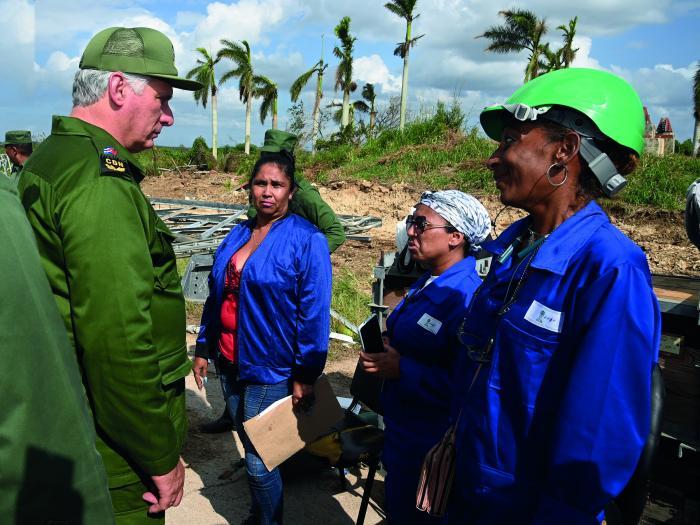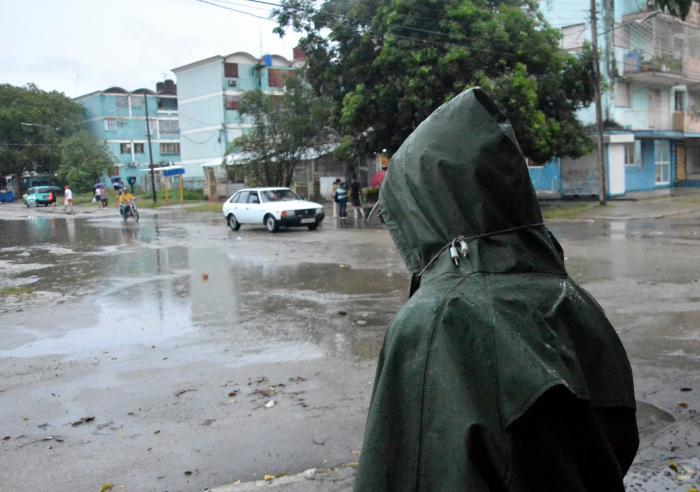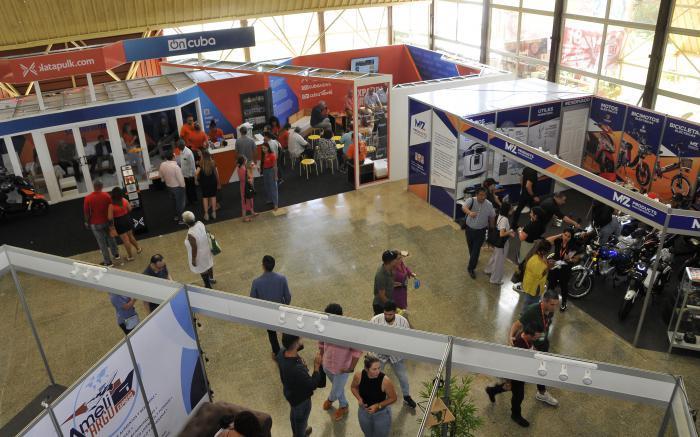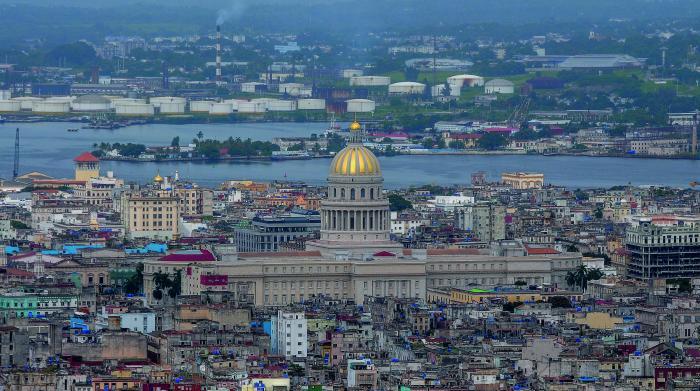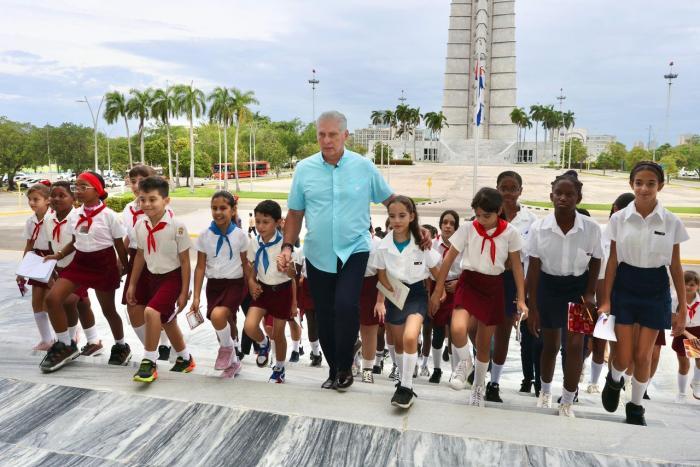

Photo: Estudios Revolución
They arrived in avalanche to fill everything with smiles, curious, expectant, some shy, others a little more shrewd; and the Palace of the Revolution opened its doors to 52 pioneers who walked through corridors and halls, asked questions, told stories, imposed new challenges?
“Welcome to the Palace of the Revolution, a place that is history,” President Díaz-Canel told them at the foot of the imposing marble staircase leading to the gates of the emblematic site, and the merriment of the little ones began to flood the afternoon.
The President commented on the joy of having them there as he greeted each one of the little ones; he invited them to take a picture with the Revolution Square behind them, and then led them inside the Palace.
The solemn place, which has been the shelter and witness of so many transcendental moments of the Cuban Revolution, was transformed this Wednesday afternoon into a big house, while the laughter and curiosity of the children echoed in places where day by day the future of our children is also defined.
In the midst of such greatness, which contains the drive and dreams of Fidel, Raul, Celia, Almeida, Ramiro and so many others who have been building our history, the spontaneity and simplicity of the children broke the barriers of formality to give way to a dialogue without any formalities in between.
Defend those rights and enjoy them, concluded Díaz-Canel. Photo: Alejandro Azcuy
“Do you know why you are here today?” asked Díaz-Canel, and a chorus of children's voices responded with a resounding ‘yes!’: 35 years ago, the Convention on the Rights of the Child was approved at the United Nations, and since 1955, every November 20 is celebrated as World Children's Day.From here, the Cuban President explained, we work every day thinking of you, as the important people you are, to defend your rights. We want to talk to you today about those rights, he said, and although we do not have all the material resources, we do have a homeland, independence and sovereignty to defend them.
“How do you feel your rights are respected? What do you want to be when you grow up? What do you like?”, the First Secretary of the Central Committee of the Communist Party wanted to know and had a torrent of diverse answers.
The children's voices then spoke of that November 20, 1989 and its significance for children in the world; of the pride of being born and living in Cuba; of the gratitude for the classes they receive, even when sometimes the classrooms do not have the best material conditions; of their favorite subjects; of how they defend their rights at school.
In their words also the gratitude for the tranquility they enjoy every day, and in a very special way, those who study in the Solidarity with Panama school, a beautiful place for the teaching and care of children with physical and motor limitations, which was born from the dreams of Fidel. These are the principles under which the little ones grow and are formed in Cuba, because respect and inclusion are a priority in their formation and happiness.
With the curiosity of their young age, the children asked the President brief questions about their childhood, their favorite subjects and sports, and about what it means to him to follow in Fidel's footsteps, which, the President explained, is a constant challenge for all those who currently assume the leadership of the country.
Closing the afternoon, the director of the Center for Youth Studies, Keyla Estévez García, spoke about how in Cuba, since 1959, the postulates defended 35 years ago by the Convention on the Rights of the Child are fulfilled, because since the triumph of the Revolution, work has been done with children and for them, just as Fidel always dreamed and defended.
From the hands of the director of Publisher Abril, Juan Miguel Cruz, each one then received the new issue of Zunzún magazine, dedicated to the impact of the economic, commercial and financial blockade imposed by the U.S. government, so that the children understand in simple words the damage caused to our people by that cruel policy.
“Thank you for the joy and the future,” President Díaz-Canel told the children, after giving a brief account of the different spaces provided by the Revolution to care for their children and work in favor of their benefits.
Thank you for the tenderness, affection and inspiration that you have brought us, he assured them, and then asked them never to forget that “from this Palace we work tirelessly to defend your rights”.
Defend those rights and enjoy them, he concluded, because Fidel and his comrades made the Revolution to guarantee, in the first place, those rights, because for us, there is nothing more important than a child.


